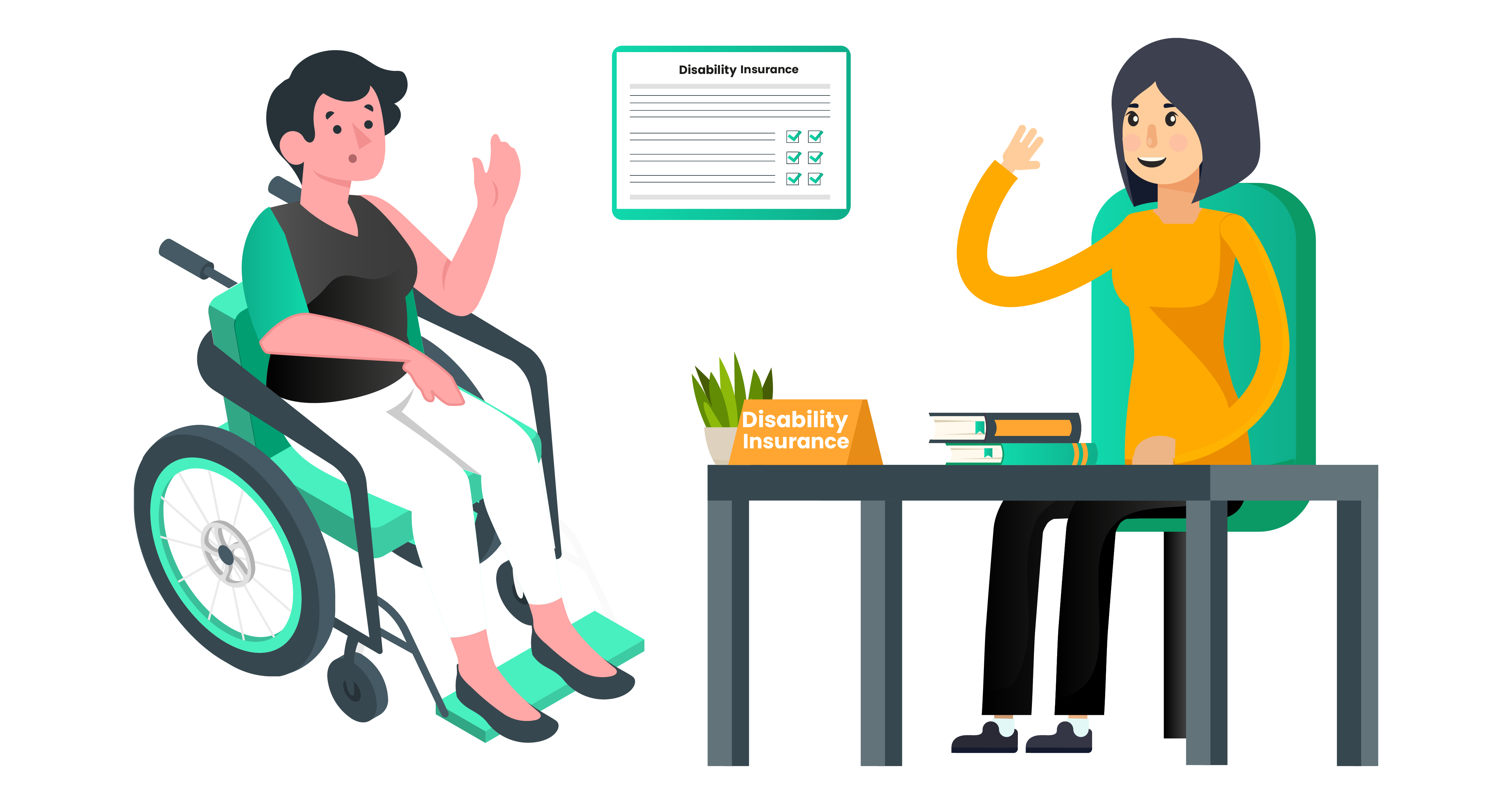
Disability insurance can help protect you and your family from an unexpected illness or accident that leaves you unable to work and earn an income. disability insurance replaces between 60% and 85% of your regular income, up to a maximum amount, for a specified time
Check to see if there is disability insurance available through your workplace, in which case your employer may cover part of your premiums. Consider purchasing a policy on your own if coverage at the workplace is insuficient to meet your needs or if workplace coverage is not available to you. Ways to buy a policy on your own include going through a professional association, contacting an insurance broker, reaching out to an insurance company. Take the time to understand the policy you are buying, and don’t be afraid to ask any questions about what your disability insurance policy covers.
As long as an employee has short-term disability benefits coverage at the time they become disabled, they are qualified to receive short-term disability benefits. The medical conditions covered by a policy range from physical to psychological, cognitive, or emotional. Many group benefits plans include short-term disability benefits. To confirm whether you have coverage, you should review your group benefits policy.
Long-term disability insurance benefits generally begin when the following benefits end. short-term disability insurance, sick leave benefits from your employer, EI benefits Most long-term disability plans will replace 60% to 70% of your normal income. Each disability plan is different. Some may provide disability benefits for up to two years if you're unable to return to the job you had before becoming disabled. After two years, you may continue to receive benefits only if you're unable to work at any job.


The definition of a disability can vary between insurance companies. The definition can even vary between different insurance plans from the same company
Some disability plans may also require you take part in a rehabilitation program if they can help you get back to work.
Check with your insurance plan administrator or insurance agent to learn your plan’s definition of disability.
An any-occupation policy is a type of disability insurance that provides coverage for when the insured is unable to work in a job suitable for them based on education, experience, and age. If the insured is capable of still working, even if it is at a lower-paying job, an any-occupation policy would not pay benefits.Employer-provided disability insurance may only be available as an any-occupation policy. Employees may purchase a supplemental disability policy for additional protection.
The definition of "regular or own occupation" plan means you'll receive bene ts if you're unable to perform the main duties of the job you had at the time the disability started. You'll still receive benefits even if you can work in a di erent job from the one you had before your disability, based on your training, experience and education. Some policies don't allow you to get benefits, or may reduce your bene ts, if you begin working in a difierent job
Own occupation plans that never change in definition are often purchased individually and usually cost more than any occupation plans. You may want to consider an own occupation plan if you have a specialized occupation that would require you to take a signi cant pay cut in order to work in another field
Every disability insurance policy imposes a waiting period, also known as the elimination period. This reference is to the number of days you must be disabled before receiving benefits, and the first check will come within 30 days of the end of this period. In other words, if you are disabled during the elimination period, you will not receive any benefits, even though you cannot work. Many people select an elimination period of 60 to 90 days. Shorter elimination periods, such as 30 or 60 days, can mean higher premiums and vice versa.

Age 18-55
Canadian citizens
What's Covered?
Benefits are payable under the following conditions Disclaimer 5:
Permanent residents/landed immigrants
Working a minimum of 30 hours per week